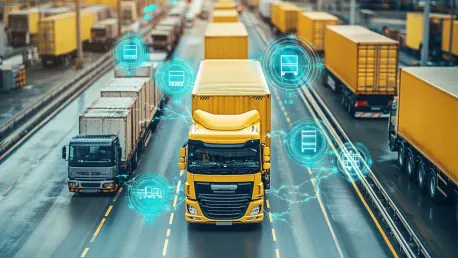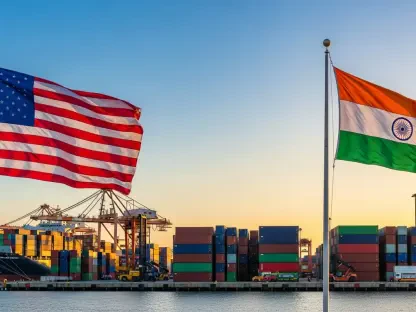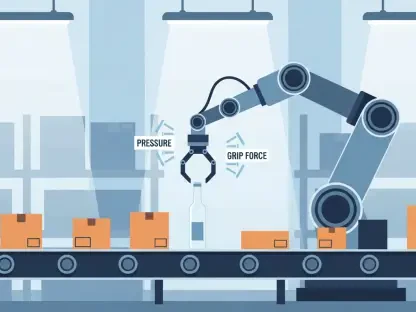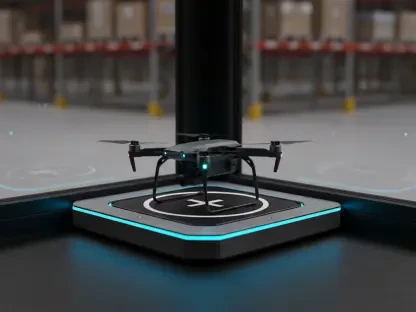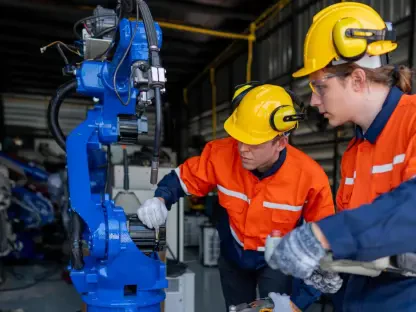Digital transformation has dramatically reshaped the logistics industry, redefining traditional methods and revolutionizing efficiency, transparency, and customer satisfaction. At the core of this transformation lies the integration of cutting-edge technologies such as the Internet of Things (IoT), Artificial Intelligence (AI), Machine Learning (ML), blockchain, robotics, autonomous vehicles, predictive analytics, and cloud computing. These advancements collectively form the backbone of today’s evolved logistics landscape, enabling companies to move away from manual, isolated processes to fully integrated, automated systems that offer unprecedented levels of visibility and control. This shift not only enhances operational efficiency but also contributes significantly to meeting the growing demands and expectations of modern consumers.
The Shift from Manual to Automated Systems
The logistics industry has undergone a significant paradigm shift, moving away from traditional manual methods and siloed processes to a more integrated and automated approach. This transformation is largely driven by IoT, which powers real-time tracking systems that elevate the visibility of goods in transit. With this enhanced visibility, logistics providers can offer more accurate delivery estimates and improve route planning, ensuring resources are managed efficiently and operations are well-coordinated.Blockchain technology is another cornerstone of this digital transformation, bolstering transparency and security within the supply chain. By creating immutable records of transactions and shipments, blockchain reduces discrepancies and fraud, thereby ensuring the integrity of the logistics process. This increased reliability fosters greater confidence among stakeholders, enhancing the overall efficiency and dependability of logistics operations.
Improving Decision-Making with AI and ML
Artificial Intelligence (AI) and Machine Learning (ML) are transforming data analysis and decision-making in the logistics sector. These technologies analyze vast datasets to predict demand patterns, optimize inventory levels, and streamline supply chain operations. The predictive capabilities of AI and ML allow logistics companies to anticipate fluctuations in demand and adapt proactively, thereby minimizing disruptions and maintaining a smooth supply chain.Autonomous vehicles and robotics have also revolutionized warehouse operations. For example, advanced automated sorting technologies can manage over 30,000 parcels per hour and operate continuously, optimizing space utilization and significantly lowering operational costs. This technological integration not only increases accuracy and speed but also allows for the efficient handling of high volumes of goods, making logistics operations more effective and reliable.
Predictive Analytics and Cloud Computing
Predictive analytics and cloud computing are proving to be invaluable in the logistics industry, enabling companies to foresee potential disruptions and respond proactively. These technologies facilitate better inventory management, improved resource allocation, and smoother overall operations. By adopting cloud-based solutions, logistics companies can access and analyze data in real-time, allowing them to make informed decisions quickly and accurately.Innovative technologies such as 3D printing and augmented reality (AR) are also making their mark on logistics. 3D printing introduces new methods of production, while AR offers advanced visualization techniques, both of which contribute to process streamlining and cost reduction. These emerging technologies further enhance the efficiency and effectiveness of logistics operations, enabling companies to adapt to the rapidly changing demands of the market.
Enhancing Customer Service with AI
On the customer-facing front, generative AI and Natural Language Processing (NLP) are revolutionizing customer service in the logistics sector. AI-powered chatbots can handle complex queries, provide detailed information, and resolve issues efficiently, leading to enhanced customer satisfaction. The ability to offer personalized and engaging interactions through these advanced technologies fosters long-term loyalty and improves the overall customer experience.Furthermore, these technologies enrich data analytics within the sector, providing deeper insights and enabling predictive tools. This allows logistics providers to offer more tailored services and anticipate customer needs more accurately. The result is a more responsive and customer-centric approach to logistics, which not only meets but often exceeds customer expectations.
Modernization Driven by E-commerce
The surge of e-commerce has significantly intensified the need for logistics providers to modernize their processes. Companies are increasingly leveraging automation and technological advancements to meet the rapid demands and extensive logistical requirements of e-commerce platforms. This modernization includes the implementation of Robotic Process Automation (RPA), AI-driven order fulfillment systems, and advanced customer service bots.These technological advancements enable logistics providers to handle higher volumes of orders more efficiently, ensuring timely and accurate deliveries. As e-commerce continues to grow, the pressure on logistics companies to innovate and optimize their operations will only increase. By embracing digital transformation, these companies can stay competitive and meet the evolving needs of the e-commerce landscape.
Addressing Data Privacy and Security Concerns
Data privacy and security have become paramount concerns in the digitized logistics landscape. Protecting customer information is crucial, and logistics companies must adopt robust data privacy measures and cybersecurity protocols to ensure data integrity. These measures include encryption, secure access controls, identity and access management, data leakage prevention, and regular security assessments. By prioritizing data security, logistics companies can build trust with customers and mitigate risks associated with cyber threats.Ensuring data privacy and security is not just about compliance; it is also about maintaining customer trust and safeguarding the reputation of the logistics company. In an era where data breaches and cyber-attacks are increasingly common, robust cybersecurity measures are essential for the sustained success of any digital transformation initiative in the logistics sector.
Future Prospects and Innovations
Looking ahead, the logistics industry is set to continue transforming through advances in IoT, blockchain, AI, and cloud computing, driving unprecedented efficiency and customer-centricity. Innovations like drone deliveries, next-gen automation, and quick commerce (Q commerce) are expected to become more scalable and impactful, further fueling the sector’s growth.As the industry evolves, focusing on data privacy, security, and infrastructure development will be crucial. The joint efforts of private enterprises and government initiatives aim to create a robust, scalable logistics sector in India, poised for remarkable growth.In summary, the digital transformation in logistics is marked by the integration of advanced technologies that streamline operations, boost efficiency, and meet changing customer expectations. The use of IoT, AI, ML, blockchain, and robotics is revolutionizing the industry by improving transparency, automating processes, and enabling real-time decision-making. To sustain this momentum, a strong emphasis on data privacy, security, and infrastructural development is essential. The collaborative efforts of private companies and government policies are paving the way for a robust logistics sector in India, primed for significant growth in the coming years.
